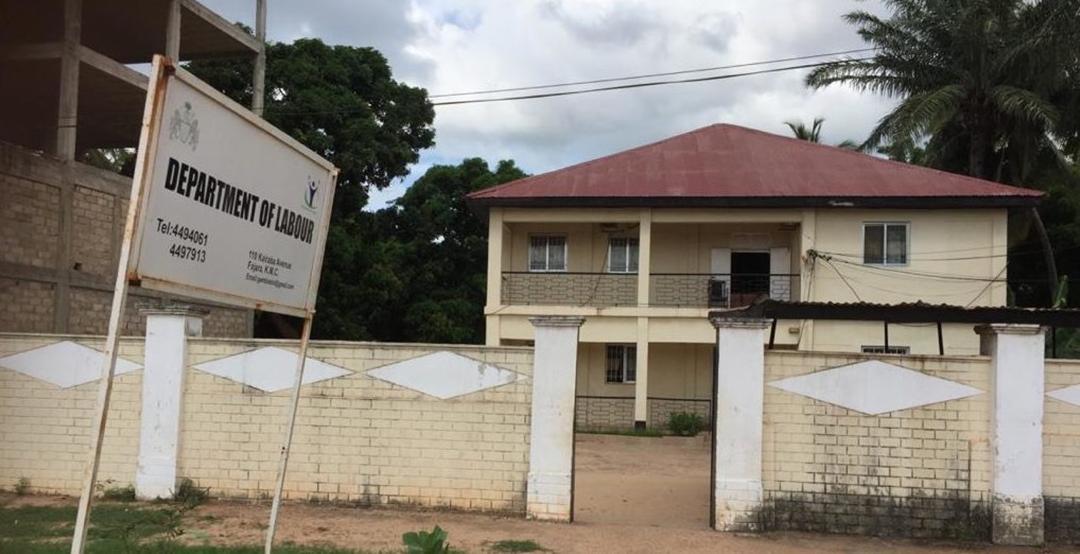By: Nyima Sillah
Giving helping hands to allow parents, homeowners, and others to go about their daily routines without hindrances, domestic workers become essential for those that can afford it.
Domestic workers as known are people that work and serve as helpers in homes, they are employed to take care of the house chores which include cooking, cleaning the house and its environment, laundry, taking care of the children of employers and other families, and lots of other domestic works as instructed by the employers, but they are in most cases neglected and denied of their rights.
In some cases, these people work beyond the scope of their terms of reference while society or better still some of their employers and families looked down on them and treat them like nobody. Still, their contribution to the place they work is contributing to their employers’ attainable success.
Speaking to the voice, a source who spoke under anonymity explained that she has been working for a non-Gambian as a house cleaner but her work goes beyond cleaning. “When I was looking for a job, he told me that the work is only cleaning the house. He said the salary is D2,500 every month but to my surprise when the month ended I was paid less salary compared to the previous agreement of D2,500. I am the one that cooks, launders the clothes, serves the dogs and I do some other errands, too.”
The source affirmed that she got paid regularly and never delay but the work she does, she lamented is far beyond the agreement she had with her employer.
Too bad, she said, she cannot leave the job despite the hardship because she has a family to care for and it is hard to get a job.
Another domestic worker, Amie Njie (not her real name) said: “My boss always treats me like a slave, I have to work extra hours which she never compensates me, I work on public holidays and run all her outdoor assignments like her messenger. Every day I go to the Serrekunda market for shopping and if I make any mistake during working hours or ‘am absent from work, she deducts it from my salary. Even if I am ill I have to bear the pain and go to work. It is disheartening.”
Amie wants to leave the job, several times she has decided this because she believes that her rights are violated but she said her mother keeps telling her to cope and endure because her husband is not working and she is the breadwinner of the family.
“To be frank I am tired, sometimes when I close from work my entire body aches, and I usually report to work by 8:00 am without breakfast. I always provide breakfast, lunch, and transport fares for myself,” she added.
However, Nyallo Barrow, the Commissioner of Labor Department, said “I may not be in the position to answer all your questions as we do not have the mandate to handle issues of domestic servants as of now. The labor Act 2007 does not apply to domestic service, the civil service, The Armed Forces, Security services (police, immigration and fire services, and prison services),”
“Domestic servants are important in society and efforts are being made to cover issues of the domestic servants in our legislation. The Labor Act is currently under review and the bill will soon be put before the National Assembly,” the Commissioner highlighted.
Furthermore, Marr Nyang, human rights activist, Founder and Executive Director of the Gambia Participates in an exclusive interview said there is already a law, the constitution of The Gambia is there, the labor law that protects labor workers both in the informal market and also the formal market.
But he said the question is how to ensure that the law is effective and how to make sure that cases of human rights violations in working places that are reported at the Labor Department are taken seriously and also the employers are accountable for those actions committed.
‘There are a lot of reports that the labor department received on a human right violation, especially issues relating to the working environment, the conduciveness and you get to talk of gender-related in these workplaces. So, the mechanisms of receiving complaints and also investigating these complaints and making sure the reaming authorities are held accountable is what is lacking,” he expressed.
Mr. Nyang went on to say the perception and lack of respect for Gambian workers, especially at private places of work. “They don’t pay some of these domestic workers enough salaries, and the way they treat them is crazy, this is because of the perception that Gambians need the job and the employment market not having many job opportunities. So, once these people get the job the employer thinks they are doing them a favor by employing them even though the salary is not enough they didn’t tend to respect them, and these people also fear losing the job,”
He outlined the basic rights of domestic workers which include a conducive working environment, and a good pay scale, their rights should be protected, seek maternal leave, they are not supposed to work overtime that they are not going to be compensated for, they should not be treating like slaves, they need to be respected.
“These are fundamental human rights that are unquestionable,” he noted.
He further stated that people work without their wages paid and there is no effective mechanism that they can use to get their compensation and it is happening frequently. “These are issues that the government should not take for granted and they need to make sure there is an effective mechanism that is used to make sure people get their wages when they are due and they get respected and if they are discriminated against there is a relevant rule that could be taken even though there is already a rule but a rule that could be used to investigate the employers and hold them accountable,” he stated.





